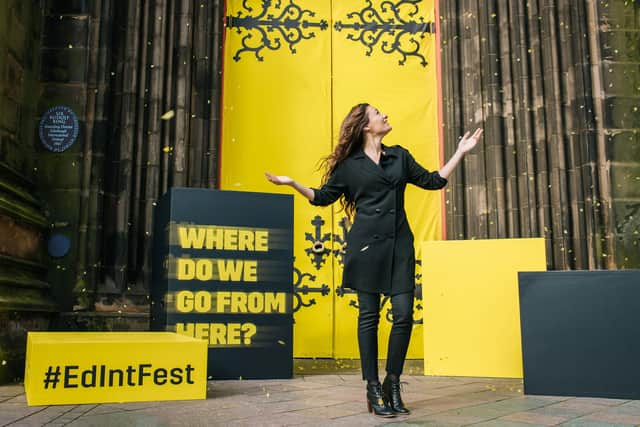Dynamic pricing: Edinburgh International Festival under fire over flexible ticket model with days to go before launch
The Edinburgh International Festival (EIF) has been hit with criticism just days before its opening night after claims the organisers have adopted a “dynamic pricing” structure, which adjusts ticket prices based on demand.
The model has come under attack more widely for making it extremely difficult for fans to see their favourite musicians due to ticket prices for popular gigs skyrocketing. Harry Styles’ recent UK tour saw tickets skyrocket to close to an average of £330. Thousands have separately taken to social media to slam ticket prices for the coming UK Taylor Swift Eras tour.
Advertisement
Hide Ad

EIF, a not-for-profit organisation that hosts opera, music, theatre and dance performances in Edinburgh during August, has developed a tradition of affordable pricing.
However, organisers said this year they had adopted “a flexible pricing model”, which means prices may be adjusted up or down, incrementally over time, based on the popularity of the performance.
They claimed the move “allows the festival to offer concession pricing of up to 50 per cent for those who require it and to fund free events.”
Long-time EIF supporter Kate Calder said she noticed the pricing model change about six weeks ago.
She said there was concern the new pricing model would impact overall sales and the composition of the audience, of which some two-thirds are said to come from Edinburgh – many of them pensioners.
Writing to the Edinburgh Music Review, Ms Calder said: “I bought nine tickets in late April, at a total cost of £341.50. At that time, the top price ticket for the concert performance of ‘The Magic Flute’ was £64.50 and compared favourably with a top priced seat for the ‘Götterdämmerung’ concert in 2019 at £60.
Advertisement
Hide Ad"A month later when I went to buy more tickets, I realised that prices had increased, and found that my basket of tickets would then cost £489.50. Only my two bottom priced tickets at £21 were the same, while a top-price ticket for ‘The Magic Flute’ was now £89.”
She said after looking at other ticket sales on the website, it was clear that as soon as a percentage of places were sold, which she estimated to be about 35 per cent, all price levels went up apart from the lowest, and these continued to rise as more tickets were sold.
Advertisement
Hide Ad"This type of pricing, though expected for rail and air travel, is virtually unknown in classical music concerts and opera houses and is certainly new for the EIF,” Ms Calder said.
Ms Calder accused the EIF of introducing the new ticket selling model “by stealth”.
Hugh Kerr, editor of the Edinburgh Music Review, said there was a danger the EIF would develop a reputation as being a festival for “the well-heeled”.
"I was at Covent Garden a few weeks ago and paid £19 for a very good upper slips seat and could have got one for £11,” he said. "Covent Garden is thought to be for the rich, but the truth is it’s much more accessible than the Edinburgh festival.”
EIF organisers said the body was among “dozens” of arts and culture organisations adopting the same flexible pricing technology.
A spokesperson said: “The International Festival, as well as most concert halls and ticketed venues in Edinburgh and across the UK, has for a long time manually adjusted prices based on predicted interest in performances.
Advertisement
Hide Ad"Flexible pricing simply streamlines that price adjustment process, within guidelines that we set, based on demand. We carefully monitor the pricing and none of the prices this year will exceed our top prices from 2022.”
Comments
Want to join the conversation? Please or to comment on this article.
